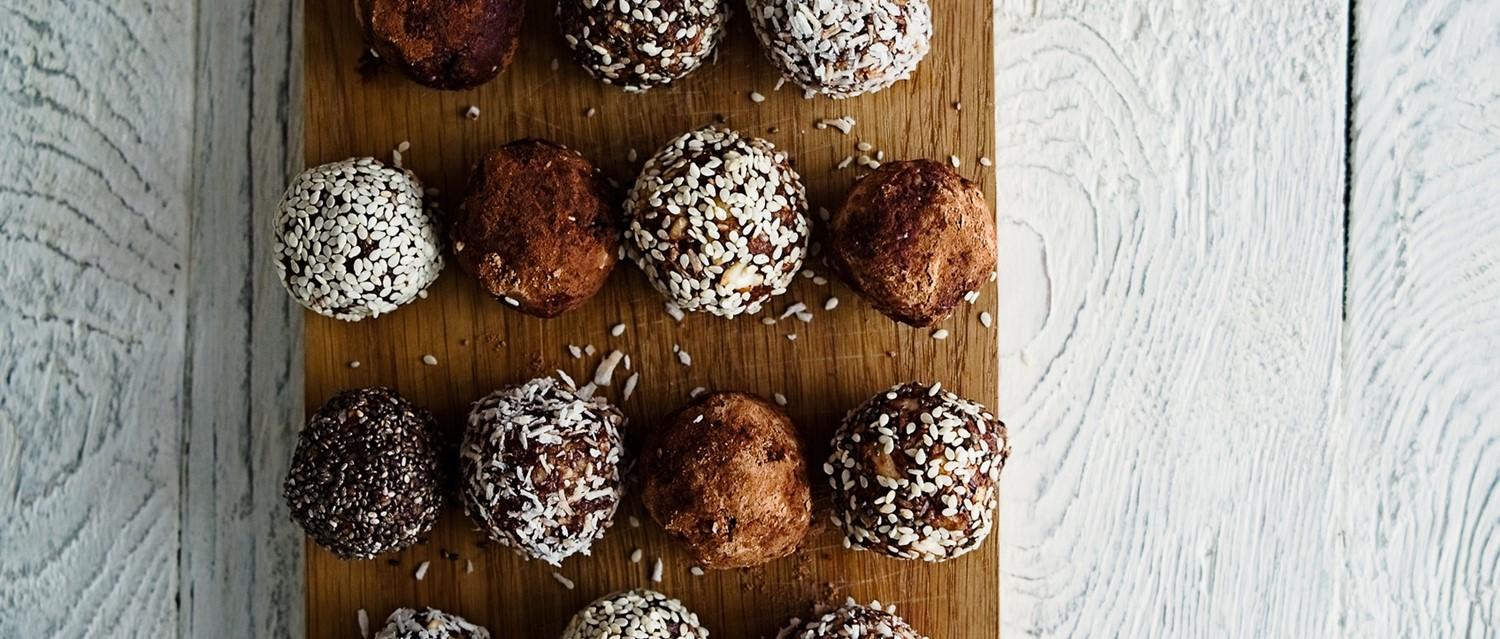
Managing health conditions during Ramadan
Peer reviewed by Dr Krishna Vakharia, MRCGPAuthored by Amberley DavisOriginally published 22 Mar 2023
Meets Patient’s editorial guidelines
- DownloadDownload
- Share
- Language
- Discussion
Ramadan is a special time that brings Muslims closer to Allah and their loved ones. Having a health condition that's affected by fasting can be challenging, but with support from healthcare professionals you should still be able to have a happy and healthy Ramadan.
In this article:
Continue reading below
Your choice
Ramadan can do a lot of good for your health, happiness, amd spiritual wellness. If you have a medical condition that makes fasting during Ramadan unsafe, you can choose not to fast. This guidance comes from the Muslim Council of Britain (MCB)1, and many other Islamic councils worldwide, but ultimately this is a personal decision.
Dr Ammad Mahmood is a clinical lecturer in neurology at the University of Glasgow and co-author of the paper Advising patients with existing conditions about fasting during Ramadan: "Generally, I've found that people don't want to be exempt," he says. "As a medical professional, convincing someone not to fast is very difficult, especially if their condition leaves them in a grey area."
Being in a grey area means that there's no clearcut answer as to whether you should fast. For example, your doctor may have safety concerns, but the lack of research around your medical condition during Ramadan could make it hard to know just how detrimental fasting could be to your health.
"Ultimately, the decision of whether to participate in Ramadan always rests with you," says the doctor. "As medical professionals, we recognise how important it is for people to identify with their religious authority. Even if you are medically exempt from participating in Ramadan fasting, spiritual health is also very important."
But no matter what you decide, if you have a health condition that could be affected by Ramadan, speak to your GP or condition specialist. As well as helping you understand any risks, they can help with Ramadan fasting preparation, management, and support to keep you safe and feeling as well as possible during the holy month.
Advice for all medical conditions during Ramadan
Back to contentsNo matter your health condition, Dr Mahmood recommends you think about these steps:
1. Preparation
"Preparation is really important. We encourage you to start planning for Ramadan 2-3 months ahead, because any changes to how you manage your condition can take time to implement. Forming a strategy in advance gives you the time to speak to your GP, condition specialist, or pharmacist about any adjustments you'll need to make to safely manage your condition."
2. Personalised strategies
The decisions you make with your healthcare expert will depend on your specific illness and its severity. According to Dr Mahmood, this could include:
Considering trial fasting - fasting before Ramadan can allow you to test how it affects your health, and to stop if problems arise.
Deciding whether your condition is compatible with fasting.
Discussing appropriate changes to your medications.
Making relevant lifestyle adjustments - this may involve thinking about how your diet changes during Ramadan, as well as your changing sleep patterns and the effects of fatigue on your illness.
3. Alternative options
For many Muslims living with or without medical conditions, fasting during Ramadan - a style that can also be described as intermittant fasting - is beneficial for the mind and body. For some health conditions, it's a question of moderation.
"Some health conditions aren't affected by fasting so long as you take a break from it every fourth or fifth day," says the doctor. "For this reason, some people choose to take these days off - rather than fasting consecutively for the full 29-30 days - and then make up these days by fasting for a longer period overall."
Another alternative that can work for some is observing Ramadan in winter, instead of spring or summer. This is because certain conditions only become a challenge when Ramadan daylight fasting hours are long. Observing Ramadan in winter, when fasting hours are much shorter, could help to keep you safe and your condition under better control.
Of course, there are many considerations when thinking about doing Ramadan differently. For example, observing Ramadan at a different time to your family and friends can bring its own set of challenges. Changing how you observe Ramadan is a big decision, but remember that making adjustments for the right reasons, like your health, is totally acceptable.
4. Signs during fasting
No matter how prepared you may be feeling, Dr Mahmood says that it's important that you know the symptoms to look out for during Ramadan that require you to seek medical help, or to stop abstaining from food or medication, to prevent serious or permanent damage to your health. These symptoms and actions will depend on your condition.
Continue reading below
Heath conditions and Ramadan - a closer look
Back to contentsRamadan can benefit your health and wellbeing in many ways, but refraining from food, drink, and medications between suhoor (the pre dawn meal) and iftar (the after sunset meal) can be dangerous with certain health conditions.
Diabetes and Ramadan
There is more research from the British Islamic Medical Association (BIMA) on managing diabetes over Ramadan than any other health condition2. However, it's not enough to trawl the internet for information - you need to speak with your GP or diabetes specialist as their advice will be tailored to you and how severe your diabetes is.
"Someone with well controlled type 2 diabetes may just need a review of their medications, but someone with type 1 or more severe type 2 diabetes may need to consider more measures for safely controlling their insulin over Ramadan," says Dr Mahmood. You can find out more about potential precautions by reading our article, How to manage diabetes during Ramadan.
Cardiovascular conditions and Ramadan
People with cardiovascular conditions - which involve the heart and blood vessels - also need to plan for the month of Ramadan. For example2:
Blood pressure - dehydration caused by fasting can lead to dangerous peaks and dips in blood pressure. If you already have low or high blood pressure, your doctor may review your medication and recommend you use a home blood pressure monitoring device.
Coronary heart disease - a history of heart disease may put you at a low to moderate risk of further injury during fasting, and this risk increases if you pause rehabilitation sessions during Ramadan. It's important to review your regular medications and discuss any plans to not take them with an expert.
Recent heart attack or heart surgery - if you have had either of these within six weeks of Ramadan, many experts recommend that fasting is too high risk.
Although data is limited, experts have attempted to group cardiovascular conditions into low- moderate risk, high risk, and very high risk3.
Risk level | Examples of conditions | General advice |
Low-moderate | High blood pressure, stable angina, or non-severe heart failure. | Fasting may be safe, depending on your condition and medication. |
High | Poorly controlled arrhythmias or recent heart attack. | Fasting for 29-30 days may not be safe, but alternative options like winter fasting may be safe. |
Very high | Severe heart failure. | Fasting for 29-30 days may not be safe but alternative options like winter fasting may be safe. |
Mental illness and Ramadan
More research is needed on mental illnesses and Ramadan, but in his research, Dr Mahmood has found evidence that fasting during Ramadan could be safe for people with certain mental health conditions, such as schizophrenia and bipolar disorder4.
However, there are greater conflicts and higher risks for fasting with other mental health conditions. Eating disorders - like anorexia, bulimia, and binge eating - can be particularly difficult to manage at Ramadan. Speak to your doctor about getting extra support and management help during this time.
Cancer and Ramadan
There's currently not a lot of research on managing cancer during Ramadan, but after consulting with an oncologist, Dr Mahmood says this was the most important message:
"Even though some people are medically exempt from participating in Ramadan fasting, spiritual health is also very important - and this can be especially true for the people living with a cancer diagnosis. It's first and foremost your choice to fast, but no matter what you decide, speak to your specialist. They can find ways to support you and your health through Ramadan."
Pregnancy and Ramadan
Although pregnant women are permitted by Islamic law to not fast, it's thought that up to nine in 10 choose to fast for at least part of Ramadan5. The evidence around maternal diet restriction is mixed, However, many experts advise against Ramadan fasting during pregnancy because it may increase the likelihood of6:
Kidney problems in the mother.
Low birth weight and other special care needs in the baby.
Other studies have found no health differences between babies born to mothers who have fasted and those who haven't. These dangers will very much depend on how long you fast for, and other factors such as your stage of pregnancy and overall health.
Feeding the research
There's still much to learn about Ramadan and health conditions. For this reason, if you have experience of managing a health condition over Ramadan, Dr Mahmood says sharing this with your doctor is extremely valuable: "Your past experiences can help inform the preparation advice and is a great indication of how safe you're able to stay while dealing with a particular condition."
Further reading
Back to contentsMuslim Council of Britain: Ramadan guide.
Akhtar et al: Ramadan fasting: recommendations for patients with cardiovascular disease.
Mahmood et al: Advising patients with existing conditions about fasting during Ramadan.
Mirghani et al: Diet restriction in Ramadan and the effect of fasting on glucose levels in pregnancy.
Patient picks for Healthy eating

Diet and nutrition
How to choose healthy snacks for you and your kids
In January 2018, Public Health England (PHE) launched a Change4Life campaign after research found half of children's sugar intake, currently around seven sugar cubes a day, comes from unhealthy snacks and sugary drinks. It encourages parents to 'look for 100-calorie snacks, two a day max' to cut children's sugar intake. But the real question is: should kids and adults be snacking in the first place? And if so, what are the healthiest things to eat between meals?
by Rose Constantine Smith, ANutr

Diet and nutrition
Are artificial sweeteners really that bad for us?
Sweeteners are often seen as a healthy alternative to sugar, which can contribute to many diseases and conditions such as obesity, type 2 diabetes, and heart disease. But in the last few years, research has suggested artificial sweeteners might not be the better option - and may be linked to an increased cancer risk.
by Lydia Smith
Continue reading below
Article history
The information on this page is peer reviewed by qualified clinicians.
22 Mar 2023 | Originally published
Authored by:
Amberley DavisPeer reviewed by
Dr Krishna Vakharia, MRCGP

Ask, share, connect.
Browse discussions, ask questions, and share experiences across hundreds of health topics.

Feeling unwell?
Assess your symptoms online for free
Sign up to the Patient newsletter
Your weekly dose of clear, trustworthy health advice - written to help you feel informed, confident and in control.
By subscribing you accept our Privacy Policy. You can unsubscribe at any time. We never sell your data.